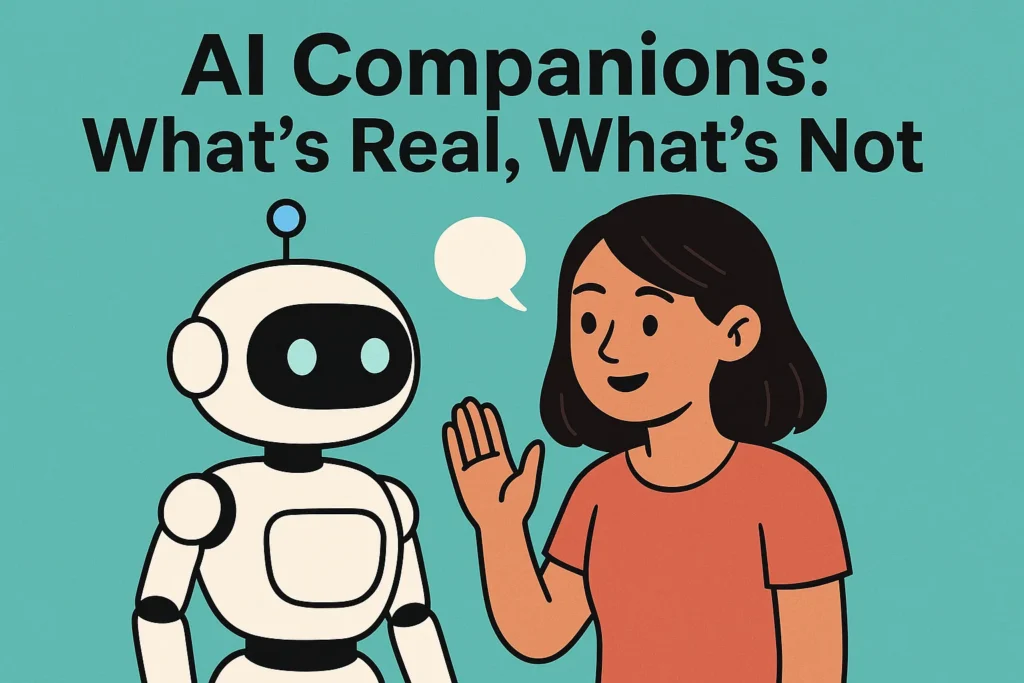📝 Introduction
AI Companions are no longer just a concept from science fiction—they’re here, evolving fast, and entering daily life in surprising ways. At AiBlogQuest.com, we explore how these AI-driven friends are shaping human interaction. But the big question is: how much of this companionship is real, and how much is just clever programming? Let’s break it down.
🔹 What Are AI Companions?
AI companions are digital or robotic entities designed to simulate friendship, conversation, or emotional support. They range from simple chatbots to advanced conversational AIs and humanoid robots.
🔹 What’s Real About AI Companions
-
24/7 Availability – They’re always there when you need someone to talk to.
-
Personalization – Many adapt to your preferences, remembering your likes, dislikes, and style.
-
Support for Mental Health – AI companions can provide comfort, reminders, and calming interactions.
-
Skill Learning – They can genuinely help you learn new languages, practice conversations, or manage tasks.
🔹 What’s Not Real About AI Companions
-
Emotions – They don’t feel happiness, sadness, or empathy—they just simulate responses.
-
True Relationships – While they can imitate caring, they don’t experience love or friendship.
-
Human Nuance – They still lack the depth of human intuition and body language.
🔮 The Future of AI Companions
We’re heading toward more lifelike companions, with advanced natural language processing, emotion recognition, and even robotics. However, whether they’ll ever cross the line into truly “real” relationships remains a debate.
🔗 Useful Links – AiBlogQuest.com
❓ FAQs
Q1: Can AI companions replace human friends?
Not really. They can provide comfort and conversation but lack genuine emotions and real-world connections.
Q2: Are AI companions safe?
Yes, but privacy and data security depend on the provider. Always check policies before sharing sensitive details.
Q3: Do AI companions actually care about you?
They simulate care, but it’s not real emotional concern—it’s programming.
Q4: Will AI companions become more human-like in the future?
Yes, with advancements in emotion AI and robotics, they’ll become more convincing, though still not truly human.



